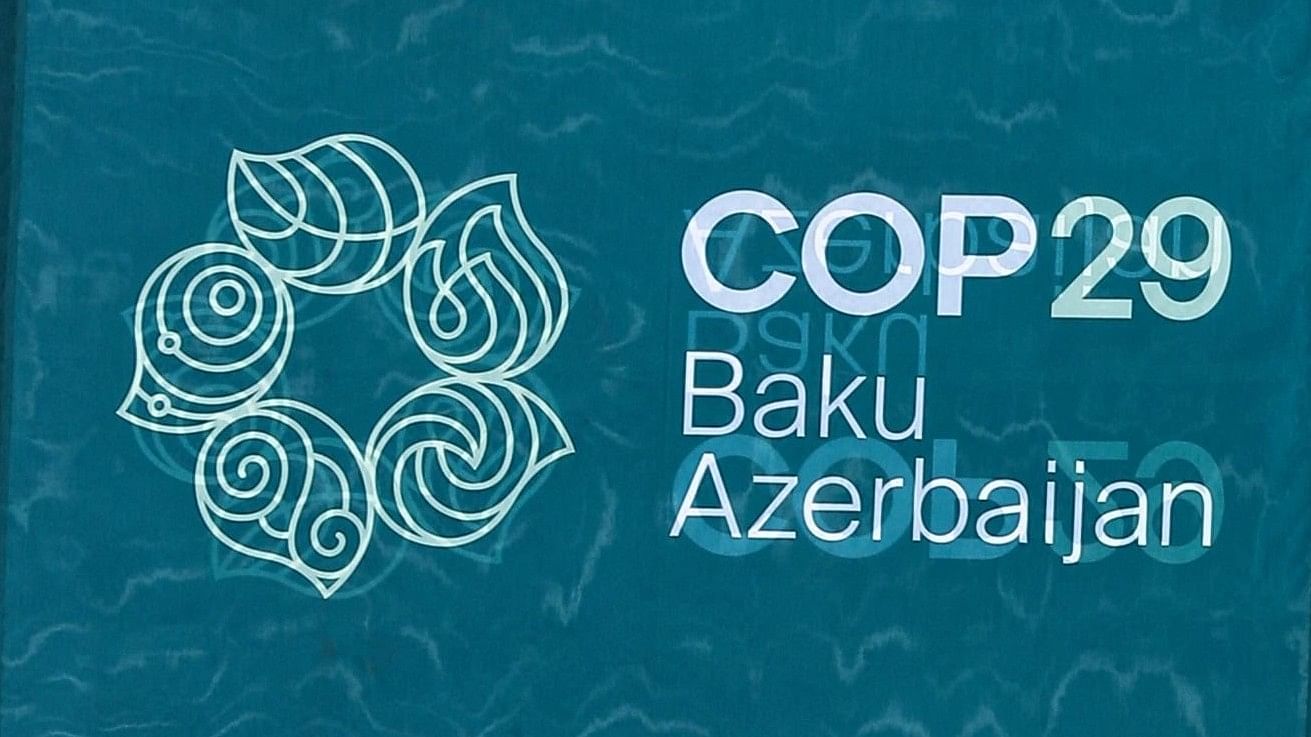
A flag with the logo of the COP29 United Nations Climate Change Conference.
Credit: Reuters Photo
Its timing may be one of the biggest challenges it faces in going down in history as a game-changing Conference of the Parties (COP), caught as it is when the attention of the whole world is focused on how the return of Donad Trump as president of the United States will affect global policies and frameworks — especially how Washington will address environmental concerns.
The fact, however, that expectations are low about the COP29 summit in Baku, Azerbaijan, starting November 11, being able to significantly move the needle on the issue of climate change could work to its advantage.
The apparent lack of hype and hoopla surrounding the global climate conference may enable world leaders to display a bigger spirit of give and take during negotiations at Azerbaijan as they could feel less burdened by the need to play to the galleries, and in extracting the best climate deal for their respective nations.
This could mean that discussions can be less focused on the optics (individual countries rattling off their own achievements on the climate front and telling others to follow in their footsteps) and more on the substantive issues which need taking care of to address the humongous challenge which climate change poses to humanity.
The usual blame game resorted to by developing countries and sermonising by some rich nations on the issue of climate change, witnessed at previous COP summits, could be kept to a minimum.
By extension, the likelihood of last-minute changes having to be made to the COP29 declarations — due to countries harbouring apprehensions about how the language used in the declarations may be perceived by their domestic stakeholders — could also be reduced in such a scenario.
At this point, it may be worth mentioning that the start of the COP28 summit in Dubai held in 2023 had also been accompanied by scepticism on how a climate conference being held in a petrostate could advance the global fight against climate change.
But, contrary to what many had thought initially, the Dubai summit boldly went where no previous summit had gone before and scored a major win by succeeding in obtaining an agreement on the touchy issue of fossil fuels.
Dubai saw an agreement being reached by countries to transition away from fossil fuels in a just, orderly, and equitable manner, striking a fine balance between ambitious climate action and ensuring climate justice.
By simultaneously making it clear to the fossil fuel sector that it can no longer be business as usual for that arena and, also, ensuring that developing countries had the space they needed to make an orderly transition to clean energy and could take care of their energy independence and energy security needs.
Global leaders being motivated by what happened at Dubai and displaying visible intent to carry forward the climate agenda at the COP29 in Azerbaijan could ensure that the meeting next week is not bereft of progress, and it could spring a welcome surprise in terms of achievements.
Mahatma Gandhi said, “You may never know what results come of your actions, but if you do nothing, there will be no results”.
World leaders remembering this saying when they gather in Azerbaijan could also significantly increase the chances of progress at COP29 as sitting on the fence and hesitating to take timely decisions would only enhance the magnitude of the challenges that we face on the climate front.
Being the world’s most populous nation and home to almost 18 per cent of the global population, India has one of the biggest stakes in the issue of climate change. India, thus, taking the lead to ensure that the COP29 summit in Azerbaijan delivers concrete outcomes is what one expects.
(Sumali Moitra is a current affairs commentator. Views expressed are personal.)
Disclaimer: The views expressed above are the author's own. They do not necessarily reflect the views of DH.